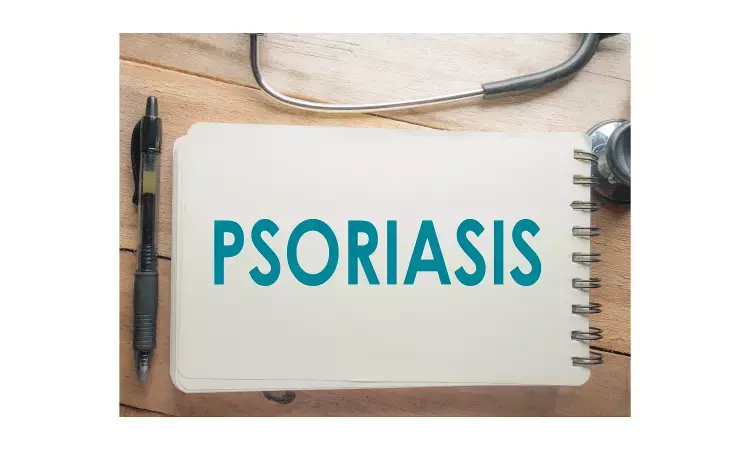- Home
- Medical news & Guidelines
- Anesthesiology
- Cardiology and CTVS
- Critical Care
- Dentistry
- Dermatology
- Diabetes and Endocrinology
- ENT
- Gastroenterology
- Medicine
- Nephrology
- Neurology
- Obstretics-Gynaecology
- Oncology
- Ophthalmology
- Orthopaedics
- Pediatrics-Neonatology
- Psychiatry
- Pulmonology
- Radiology
- Surgery
- Urology
- Laboratory Medicine
- Diet
- Nursing
- Paramedical
- Physiotherapy
- Health news
- Fact Check
- Bone Health Fact Check
- Brain Health Fact Check
- Cancer Related Fact Check
- Child Care Fact Check
- Dental and oral health fact check
- Diabetes and metabolic health fact check
- Diet and Nutrition Fact Check
- Eye and ENT Care Fact Check
- Fitness fact check
- Gut health fact check
- Heart health fact check
- Kidney health fact check
- Medical education fact check
- Men's health fact check
- Respiratory fact check
- Skin and hair care fact check
- Vaccine and Immunization fact check
- Women's health fact check
- AYUSH
- State News
- Andaman and Nicobar Islands
- Andhra Pradesh
- Arunachal Pradesh
- Assam
- Bihar
- Chandigarh
- Chattisgarh
- Dadra and Nagar Haveli
- Daman and Diu
- Delhi
- Goa
- Gujarat
- Haryana
- Himachal Pradesh
- Jammu & Kashmir
- Jharkhand
- Karnataka
- Kerala
- Ladakh
- Lakshadweep
- Madhya Pradesh
- Maharashtra
- Manipur
- Meghalaya
- Mizoram
- Nagaland
- Odisha
- Puducherry
- Punjab
- Rajasthan
- Sikkim
- Tamil Nadu
- Telangana
- Tripura
- Uttar Pradesh
- Uttrakhand
- West Bengal
- Medical Education
- Industry
Abatacept fails to prevent psoriasis relapse occuring after ustekinumab withdrawal: JAMA

Research on psoriasis pathogenesis has largely increased knowledge on skin biology in general. The mechanisms involved in the initiation and development of the disease, as well as the therapeutic options that have arisen from the dissection of the inflammatory psoriatic pathways.
A randomized clinical trial by Harris M Kristina , PhD and team revealed that abatacept did not prevent psoriasis relapse that occurred after ustekinumab withdrawal because it did not completely block the pathogenic psoriasis molecular pathways that led to relapse.
The findings of the study are published in JAMA Dermatology.
The objective of the study was to determine whether costimulatory signaling blockade with abatacept prevents psoriasis relapse after ustekinumab withdrawal.
The study was a parallel-design, double-blinded, placebo-controlled randomized clinical trial, was conducted at 10 sites in the US and Canada. Adults with moderate to severe plaque psoriasis were included and received ustekinumab in a lead-in phase and divided into two groups ustekinumab group or the switched to abatacept group. Treatment was discontinued at week 39, and participants were followed up for psoriasis relapse until week 88. Participants received subcutaneous ustekinumab at weeks 0 -4, abatacept group received subcutaneous abatacept at week 12, from weeks 12 to 39 and ustekinumab placebo at weeks 16 and 28. The primary end point was psoriasis relapse between weeks 12 and 88. Secondary end points included time to psoriasis relapse, proportion of participants with psoriasis relapse between weeks 12 and 40, and adverse events.
The results of the study were
• A total of 108 participants were treated with open-label ustekinumab; 91 were randomized to blinded treatment. Similar proportions of participants in the abatacept group and the ustekinumab group relapsed between weeks 12 and 88.
• Median time to relapse from the last dose of ustekinumab was similar between groups as well: 36 weeks (95% CI, 36-48 weeks) in the abatacept group vs 32 weeks (95% CI, 28-40 weeks) in the ustekinumab group.
• Similar numbers and rates of adverse events occurred. Abatacept did not maintain suppression of the pathogenic IL-23-mediated psoriasis molecular signature in lesions after ustekinumab withdrawal, and serum IL-19 levels increased.
Kristina and team concluded that "This parallel-design, double-blind randomized clinical trial found that abatacept did not prevent psoriasis relapse that occurred after ustekinumab withdrawal because it did not completely block the pathogenic psoriasis molecular pathways that led to relapse."
Reference:
Harris KM, Smilek DE, Byron M, et al. Effect of Costimulatory Blockade With Abatacept After Ustekinumab Withdrawal in Patients With Moderate to Severe Plaque Psoriasis: The PAUSE Randomized Clinical Trial. JAMA Dermatol. Published online October 13, 2021. doi:10.1001/jamadermatol.2021.3492
Medical Dialogues consists of a team of passionate medical/scientific writers, led by doctors and healthcare researchers. Our team efforts to bring you updated and timely news about the important happenings of the medical and healthcare sector. Our editorial team can be reached at editorial@medicaldialogues.in.
Dr Kamal Kant Kohli-MBBS, DTCD- a chest specialist with more than 30 years of practice and a flair for writing clinical articles, Dr Kamal Kant Kohli joined Medical Dialogues as a Chief Editor of Medical News. Besides writing articles, as an editor, he proofreads and verifies all the medical content published on Medical Dialogues including those coming from journals, studies,medical conferences,guidelines etc. Email: drkohli@medicaldialogues.in. Contact no. 011-43720751


